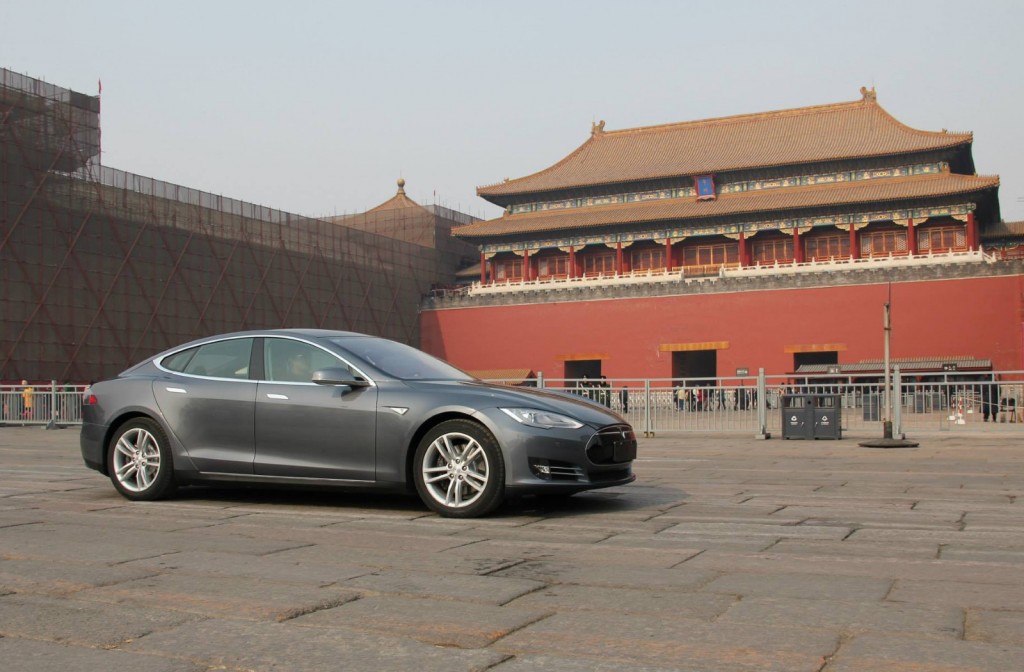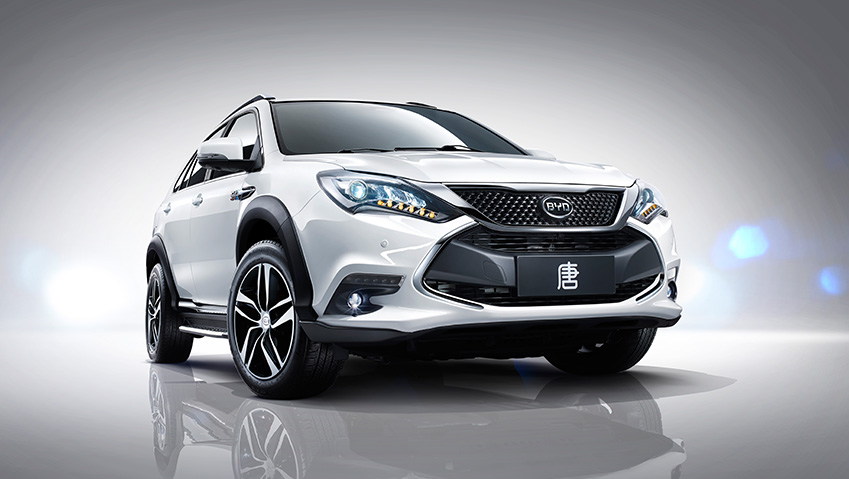After years of enthusiastic support, China's national government may soon discontinue its electric-car subsidies.
Seeing electric cars as a way to solve the country's serious air-pollution problem, China's local, state, and national governments enacted various generous incentives to entice an indifferent public.
And over the past year or so, electric-car sales in China have indeed increased.
DON'T MISS: Who Sold The Most Plug-In Electric Cars In 2015? (It's Not Tesla Or Nissan)
But the national government has no plans to extend subsidies past 2021, when they are set to expire.
Finance Minister Lou Jiwei reaffirmed plans to phase out green-car subsidies in a speech at an industry conference in Beijing Monday, according to Reuters.
Lou said the government plans to cut subsidies by 20 percent over the next years, and 40 percent between 2019 and 2020--before eliminating them all together in 2021.

2014 Tesla Model S in China
He said the purpose of this is to ensure the industry does not grow dependent on subsidies.
Instead, Lou said, China will let the market will decide how things play out.
Interestingly, he also praised California's emission-credit system as a market-based policy; that system allows carmakers to buy credits to offset excess emissions.
ALSO SEE: Chinese Electric-Car Sales Booming, But Not Because Buyers Want Them (Aug 2015)
Carmakers that achieve fleet averages below the maximum earn credits, which they can then sell for a profit to other makers that haven't met their averages.
Tesla Motors has taken full advantage of this system, selling credits to other carmakers and earning money in the process.
However, China does not have a comparable system, and so far there is little indication that it will implement one in the near future.

2016 BYD Tang plug-in hybrid SUV, made in China
Reacting to the news, some carmakers now wonder whether battery-electric cars or plug-in hybrids will become dominant in China.
While China reported greater electric-car sales than the U.S. last year, plug-in hybrids appear to have made up a majority of that total.
MORE: China Emission Standards: So Tough Honda Will Have All Hybrids By 2025 (Dec 2015)
China still lacks developed charging infrastructure, which makes plug-in cars with backup internal-combustion engines more attractive to many consumers.
But if plug-in hybrids end up outselling battery-electric cars, then how often they actually get plugged in becomes crucial.
Because if these cars aren't plugged in, then they essentially become ordinary gasoline vehicles--and no major environmental benefits are realized.
_______________________________________________












